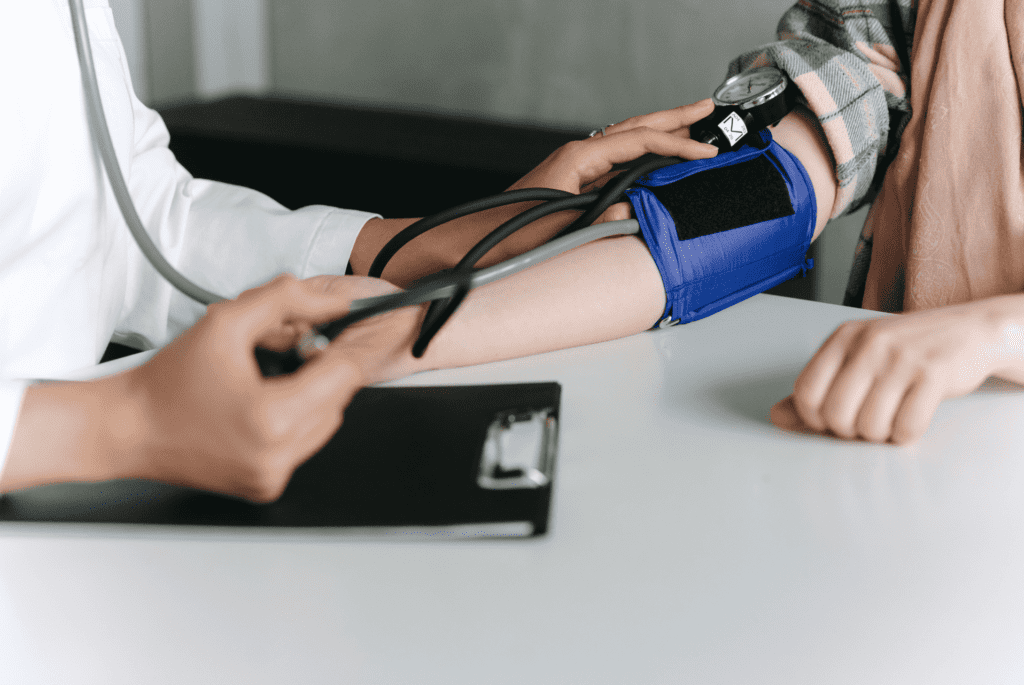According to the American Heart Association, almost half of Americans have high blood pressure.
Hypertension is blood pressure that is higher than normal. It’s a condition in which the long-term force of your blood puts pressure on your artery walls. Over time, the pressure on your artery walls may cause an array of health problems.
How do I know if I have hypertension?
A normal blood pressure is less than 120/80 mm Hg by the newest guidelines. Your blood pressure is considered high if it’s over 130/80 mm Hg.
Hypertension usually doesn’t have any symptoms. Getting your blood pressure tested regularly is the only way to find out if you have hypertension. Ask your doctor to check your blood pressure during all routine physicals. You can also get your blood pressure checked at drugstore chains, such as Walgreens and CVS. If you prefer to check your blood pressure yourself, you can purchase a home blood pressure kit.
What causes hypertension?
There are several causes of hypertension. Hypertension can be caused by:
- Being overweight
- Smoking
- Too much sodium in your diet
- Lack of sleep
- Lack of physical activity
- Genetics
- Age
- Drinking too much alcohol
What are the different types of hypertension?
95% of people with hypertension have essential hypertension. Essential hypertension is high blood pressure that doesn’t have a known secondary cause. Most people won’t notice any symptoms of essential hypertension.
The second type of hypertension is called secondary hypertension. Secondary hypertension is typically caused by an abnormality in the arteries supplying blood to the kidneys. Secondary hypertension can also be caused by hormone abnormalities, diseases and tumors of the adrenal glands, too much salt in your diet, and thyroid disease.
What are some factors that increase my risk for developing hypertension?
High blood pressure has many risk factors, including:
Age: Blood pressure tends to rise as you get older. As you age, your blood vessels gradually lose some of their elastic quality. Hypertension is more common in men up until 64 years of age. After 65 years of age, both men and women have a high chance of developing hypertension.
Genetics and family history: There’s an increased chance you will get hypertension if you have a family history of high blood pressure. Genes likely play a role in hypertension and other heart related conditions.
Not getting enough exercise: The more inactive you are, the higher your heart rate may be. Having a high heart rate puts pressure on your artery walls. Additionally, exercising regularly can lower your blood pressure by helping you maintain a healthy weight.
Smoking: Using tobacco temporarily raises your blood pressure. Overtime, this can cause damage to the lining of your artery walls.
Excessive alcohol consumption: Overtime, alcohol can increase your blood pressure and put you at risk of developing hypertension. Regular, excessive alcohol consumption can lead to many heart conditions, such as heart failure, stroke, and an irregular heart beat.
Too much salt: A diet too high in salt can carry the risk of developing hypertension. When you eat too much salt, your body holds extra water to flush the salt out of your body. This can put extra stress on your blood vessels and arteries. As a result, too much salt in your diet can eventually can lead to hypertension.
What happens if hypertension isn’t treated?
It’s important to treat hypertension as soon as you find out you have it. Uncontrolled high blood pressure can lead to disability, heart attack, heart failure, stroke, and kidney failure. Fortunately, high blood pressure is a very treatable condition.
How can I treat hypertension?
Diet
One of the most important parts of a hypertension treatment plan is sticking to a healthy diet. Pay attention to food labels and opt for choices at the grocery store that say “no salt added”.
Try to stick to a diet full of fruits, vegetables, fish, whole grains, and legumes. Stay away from processed foods and meats such as chips, candies, bacon, and cold-cuts.
Lifestyle
Treating hypertension can be done by making some lifestyle changes. If you develop hypertension, remember to check your blood pressure regularly, manage your stress, and manage any other medical conditions.
Other lifestyle changes include increasing your daily activity, quitting smoking, avoiding alcohol, and getting enough sleep every night.
Medication
Sometimes diet and lifestyle changes are not enough to treat hypertension and medication may be needed. Antihypertensives are blood pressure drugs that are available by prescription.
The bottom line
Uncontrolled hypertension is a leading cause of heart attack, stroke, and kidney failure. Fortunately, hypertension is a treatable condition. Remember to check your blood pressure regularly and talk to your doctor if you suspect you may have high blood pressure.
If you’re concerned about your blood pressure, you can get your blood pressure checked at any of our clinics.
